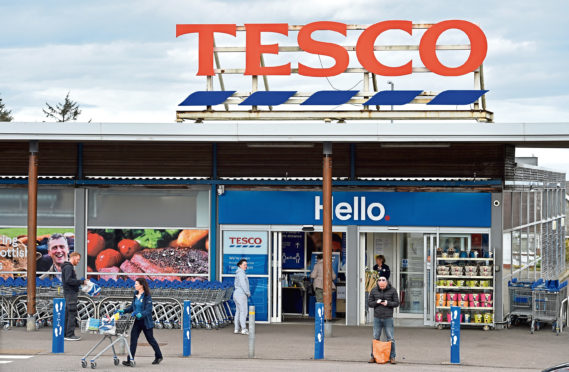Scotland has suffered its worst ever retail sales performance as the industry struggles to cope with the coronavirus pandemic.
Total sales dropped by 13% last month, compared with March 2019, according to the latest monthly Scottish Retail Consortium (SRC)-KPMG monitor.
It is the weakest performance recorded by the monitor since it was launched in January 1999 – and even adjusted for deflation the decrease sits at 12.2%.
SRC head of policy and external affairs Ewan MacDonald Russell said March was “nothing less than a shocker on Scotland’s high streets”.
He added: “These are truly dismal figures, which expose just how hard retail has been hammered by coronavirus.
“The worst overall retail sales performance ever. The worst non-food sales ever. The worst fashion and footwear sales ever.”
Mr MacDonald Russell said the headline figures masked “a tale of extreme polarisation”.
He added: “The first three weeks of the trading period saw unprecedented levels of grocery shopping, with household staples being stockpiled before sales fell back into negative territory in the last two weeks.
“Across the month, office supplies, toys and games, health and hygiene products, and fridges and freezers all saw stellar growth as customers adapted homes for lockdown.
“Conversely, the bad news was truly rotten.
“Fashion and footwear sales collapsed. Large item sales crumbled as consumer confidence fell sharply.
“Across the board, consumers appear to be reducing spending as they adapt to these new circumstances and economic concerns.”
Sales decreased by 14.5% on a like-for-like basis, compared with March 2019.
Total food sales were up 12.1% year-on-year, while non-food sales slumped by 33.6%.
Paul Martin, partner, UK head of retail, KPMG, said: “Scotland’s high streets are largely closed and there’s no short-term end in sight.
“With thousands of workers furloughed or facing redundancy, and cash flow and liquidity becoming an immediate issue, retailers now need to explore what urgent measures they can take today to ensure they secure their place in a potentially very different future retail sector.”
